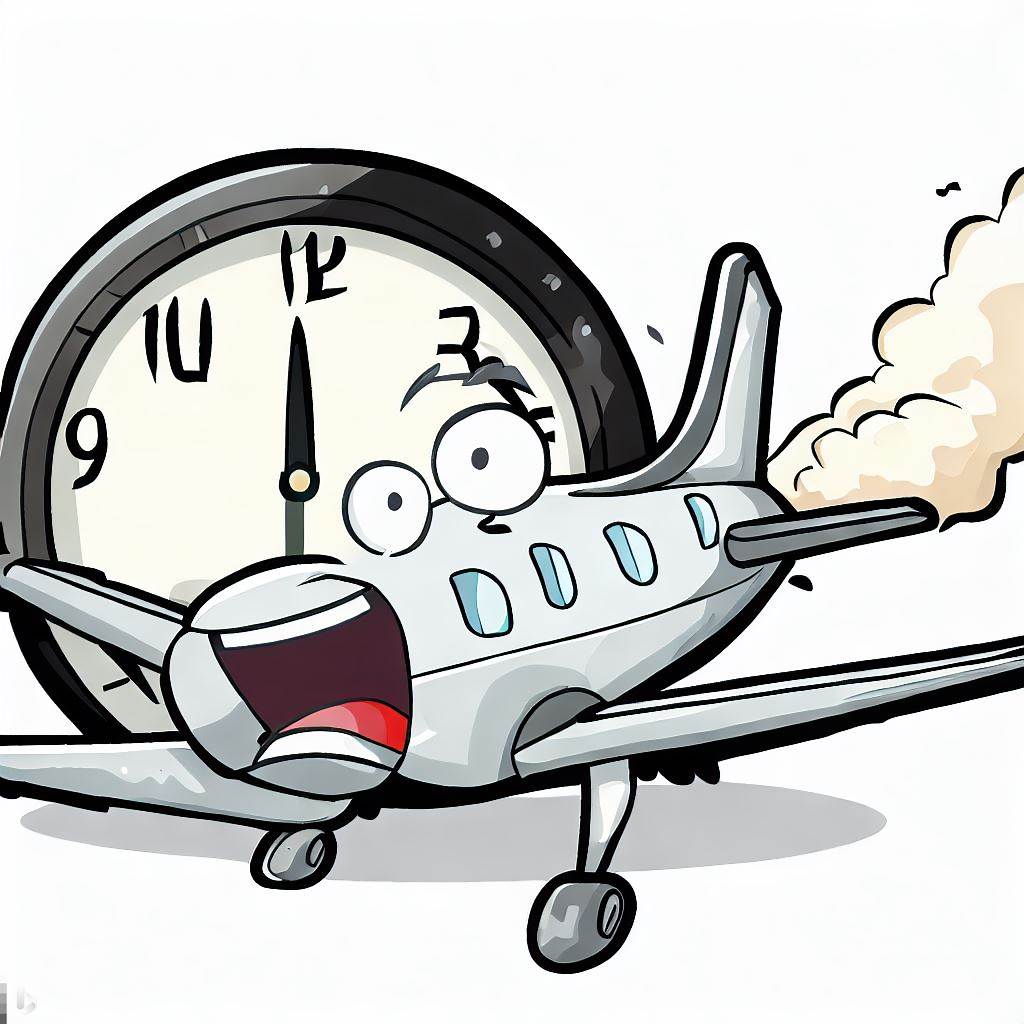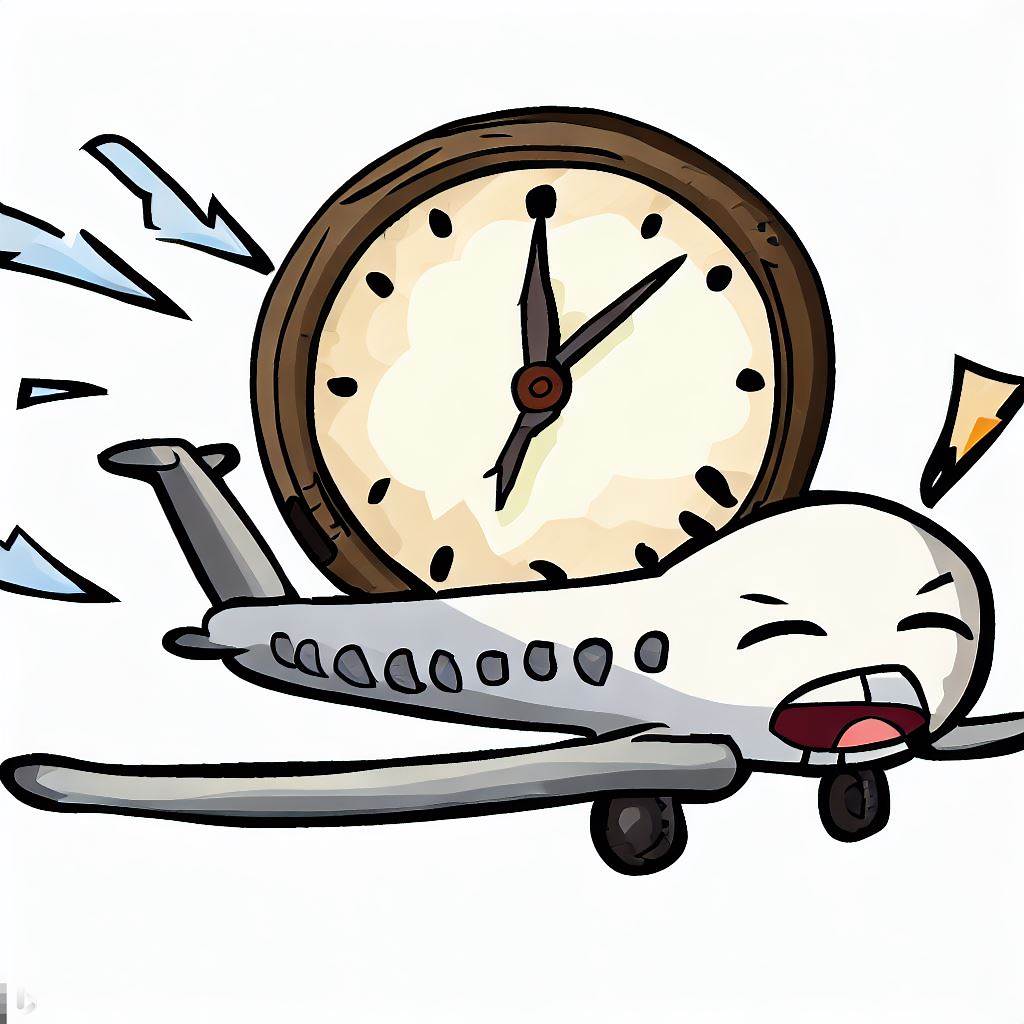
Navigating Flight Delays and Cancellations: A Comprehensive Guide on Their Impact on Connecting Flights
Travelling can be an exhilarating experience, opening up new horizons and creating unforgettable memories. However, it's not always smooth sailing, or in this case, smooth flying. Flight delays and cancellations are common occurrences in the world of air travel, often causing stress and disruption to travellers' plans, especially when connecting flights are involved. In this comprehensive guide, we delve into the world of flight delays and cancellations, their impact on connecting flights, and how to navigate these often frustrating situations.
At Flight Plan Book, we believe in putting customers at the heart of every journey. This guide is part of our commitment to providing informative and useful content to help you plan your trips better. We'll explore the reasons behind flight delays and cancellations, your rights as a passenger, potential compensation, and tips to handle such situations. So, buckle up and get ready to become a more informed and prepared traveller.
Table of Contents
- Understanding the Causes of Flight Delays and Cancellations
- The Impact of Delays and Cancellations on Connecting Flights
- Your Rights as a Passenger
- Seeking Compensation for Flight Delays and Cancellations
- Top Tips to Handle Flight Delays and Cancellations
- Common Misconceptions about Flight Delays and Cancellations
- Summary and Key Takeaways
Understanding the Causes of Flight Delays and Cancellations
Flight delays and cancellations can occur for a variety of reasons, some within the control of airlines, and others beyond their control. Understanding these causes can help you better prepare for potential disruptions to your travel plans.
Weather Conditions
Adverse weather conditions are one of the most common causes of flight delays and cancellations. Heavy rain, snow, fog, or high winds can make it unsafe for planes to take off or land. In such cases, airlines may delay or cancel flights to ensure passenger safety.
Technical Issues
Technical issues with the aircraft can also lead to delays or cancellations. Regular maintenance checks are conducted to ensure the aircraft is safe for travel. However, unexpected issues can arise, requiring immediate attention. In such cases, the airline may choose to delay the flight until the issue is resolved or cancel it if the problem cannot be fixed in a timely manner.
Air Traffic Control
Air traffic control (ATC) plays a crucial role in managing the flow of aircraft in and out of airports. Sometimes, due to high traffic volume or safety concerns, ATC may instruct airlines to delay their takeoff or landing times, leading to flight delays.
The Impact of Delays and Cancellations on Connecting Flights
Flight delays and cancellations can have a significant impact on your travel plans, especially if you have connecting flights. Missing a connection can lead to further delays, unexpected expenses, and a lot of stress.
Missed Connections
If your initial flight is delayed or cancelled, you may miss your connecting flight. This can be particularly frustrating if the connecting flight is with a different airline or if the next available flight isn't until the following day.
Additional Expenses
Missing a connecting flight can lead to additional expenses. You may need to book a hotel room for the night, pay for meals, and arrange for transportation. Some airlines may cover these costs, but it often depends on the reason for the delay or cancellation.
Disrupted Plans
Flight delays and cancellations can disrupt your travel plans. You may arrive late at your destination, miss pre-booked tours or activities, or even important business meetings or events.
Your Rights as a Passenger
As a passenger, it's important to know your rights when it comes to flight delays and cancellations. These rights can vary depending on the country and the airline, but there are some general rules that apply in most cases.
Right to Information
Airlines are obligated to inform passengers about the cause of the delay or cancellation as soon as such information is available. They should also provide updates on the situation and any changes to the flight schedule.
Right to Care
If your flight is delayed by a certain number of hours or cancelled, the airline should provide care and assistance. This can include meals and refreshments, access to communication (like a free phone call), and accommodation if you're required to stay overnight.
Right to Compensation
In some cases, you may be entitled to compensation for the inconvenience caused by the delay or cancellation. The amount and conditions for compensation can vary, so it's important to check the specific rules for the airline and the country.
Seeking Compensation for Flight Delays and Cancellations
Seeking compensation for flight delays and cancellations can sometimes be a complex process, but it's worth exploring if you've experienced a significant disruption to your travel plans. Here's a general guide on how to go about it.
Check the Airline's Policy
Each airline has its own policy regarding compensation for flight delays and cancellations. Check their website or contact their customer service for information. Some airlines may offer compensation in the form of cash, vouchers, or miles.
Understand the Rules
The rules for compensation can vary depending on the country. For example, in the European Union, passengers are entitled to compensation under EC 261 if their flight is delayed by more than three hours or cancelled, and it's the airline's fault. The compensation can range from €250 to €600, depending on the flight distance.
File a Claim
If you believe you're entitled to compensation, file a claim with the airline. Include all relevant information, such as your flight details, the length of the delay, and any expenses you incurred as a result. It's also helpful to keep any documentation, like boarding passes or receipts.
Top Tips to Handle Flight Delays and Cancellations

While flight delays and cancellations can be frustrating, there are ways to mitigate their impact on your travel plans. Here are some top tips to help you navigate these situations.
Stay Informed
Keep an eye on your flight status and stay updated on any changes. Most airlines offer flight status updates via their website or mobile app. You can also sign up for flight notifications to receive updates via email or text message.
Plan for Possible Delays
If you have connecting flights, try to leave ample time between connections to account for possible delays. While it might mean a longer layover, it could save you the stress and cost of missing a connection.
Know Your Rights
As mentioned earlier, knowing your rights as a passenger can be invaluable in the event of a delay or cancellation. Be aware of what you're entitled to in terms of care and compensation.
Keep Essential Items in Your Carry-On
In case of significant delays or cancellations, having essential items in your carry-on can be a lifesaver. This can include medications, a change of clothes, toiletries, and any important documents.
Common Misconceptions about Flight Delays and Cancellations
There are several misconceptions about flight delays and cancellations that can cause confusion for travellers. Let's debunk some of these myths.
All Delays are Compensable
While it's true that passengers may be entitled to compensation for significant delays, it's not the case for all delays. The cause of the delay plays a crucial role in determining eligibility for compensation. For instance, if the delay is due to extraordinary circumstances like severe weather conditions, airlines are usually not obligated to provide compensation.
Airlines Must Provide Accommodation for All Delays
Airlines are generally required to provide care and assistance, including accommodation, for long delays or cancellations. However, this usually applies when the delay or cancellation is within the airline's control. If the disruption is due to extraordinary circumstances, the airline may not be required to provide accommodation.
Compensation is Automatic
Compensation for flight delays and cancellations is not automatic. Passengers usually need to file a claim with the airline to seek compensation. It's important to keep all relevant documents and receipts to support your claim.
Summary and Key Takeaways
Flight delays and cancellations are an unfortunate reality of air travel. They can cause significant disruption to your travel plans, especially when connecting flights are involved. However, by understanding the causes of these delays and cancellations, knowing your rights as a passenger, and learning how to seek compensation, you can better navigate these situations and mitigate their impact on your journey.
Remember, not all delays and cancellations are within the control of airlines. Weather conditions, technical issues, and air traffic control can all play a role. In such cases, airlines are usually not obligated to provide compensation. However, they should still provide care and assistance, such as meals and refreshments, and keep you informed about the situation.
When it comes to seeking compensation, each airline has its own policy. It's important to check this policy and understand the rules for compensation. If you believe you're entitled to compensation, file a claim with the airline, providing all relevant information and documentation. And remember, compensation is not automatic - you usually need to file a claim to seek it.
Finally, there are several misconceptions about flight delays and cancellations. Not all delays are compensable, airlines may not always provide accommodation, and compensation is not automatic. By debunking these myths, you can better understand your rights and what to expect in the event of a delay or cancellation.
At Flight Plan Book, we're committed to helping you navigate the world of air travel. Whether it's finding the best flight deals, offering easy and convenient booking, or providing informative content like this guide, we put customers at the heart of every journey. For more travel tips and insights, check out our blog and our articles on Travel Essentials Reviews, Travel Hacks, and Helpful Tips When Flying.
Safe travels!
This concludes the article. Please let me know if you need any further assistance.